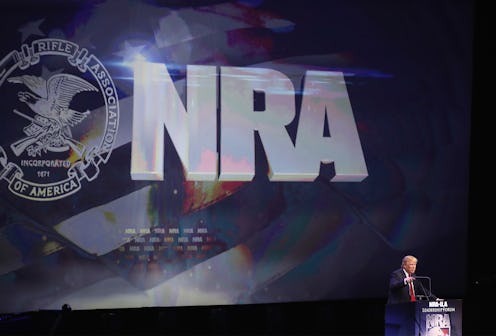Following the tragic shooting that took place at Orlando, Florida's Pulse nightclub early Sunday morning — the attack, which the Islamic State (ISIS) group has taken responsibility for, has been officially deemed the worst mass shooting in American history — the debate surrounding gun control in the United States is at the forefront more than ever. According to Mother Jones in 2012, of the 143 guns possessed by killers in mass shootings recorded in the US between the years 1982 and 2012, "more than three quarters" were obtained legally — and that number has only risen in the four years since. The statistics surrounding gun violence in America are sobering and depressing, yet, nothing seems to change — but, why? If you're finding yourself asking that question in the aftermath of the devastating events in Orlando, Frontline's gun debate documentary Gunned Down: The Power Of The NRA could not be more important viewing at a time like this.
The documentary, which can be viewed in full on PBS' website and runs a little over 54 minutes, was released as an episode of Frontline in January 2015, and investigates how powerful the National Rifle Association is as an organization, and the fact that gun regulation in the United States never seems to change even though tragedies like the one in Orlando keep seeming to repeat themselves time and time again. The summary, from PBS' website:
In Gunned Down: The Power of the NRA, FRONTLINE goes inside the politics of America's gun debate. Veteran FRONTLINE filmmaker Michael Kirk investigates the NRA, its political evolution and influence, and how it has consistently succeeded in defeating new gun control legislation.
Featuring first-hand accounts of mass shootings like the Columbine and Newton tragedies, Gunned Down is a sobering look at the gun debate in the US — and, sadly, has never been more relevant.
You can watch Gunned Down at PBS' website, here. If you'd like to help those affected by the tragedy at Pulse and are in the Orlando or central Florida area, officials are searching for blood donations immediately, particularly O negative, O positive and AB donors. You can visit this website for more information.
